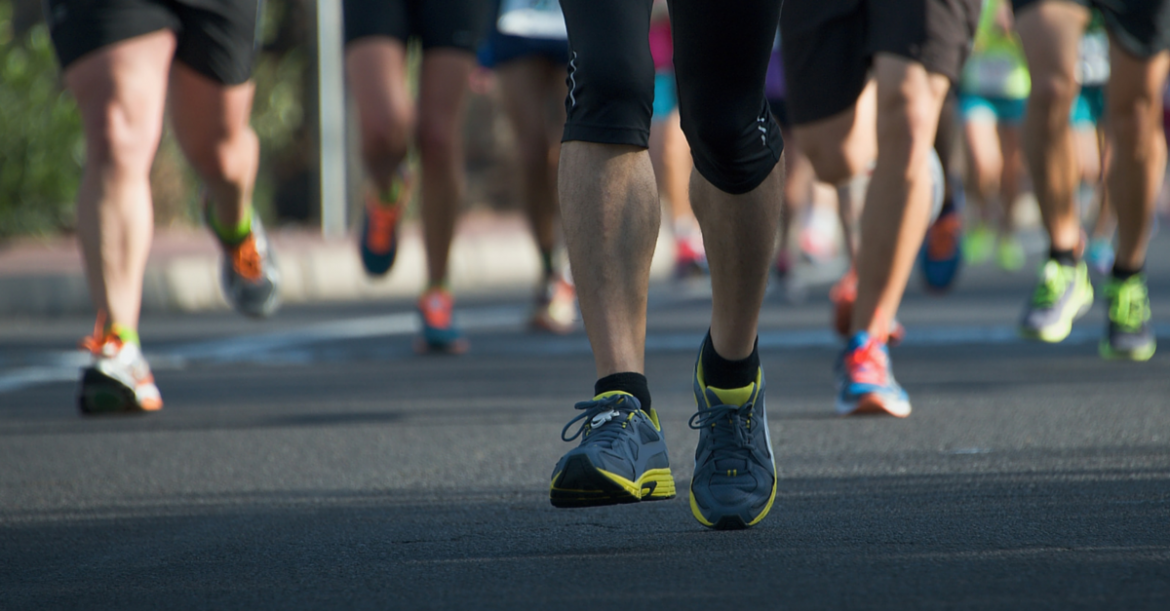This past Sunday, November 2, 2014, the 43rd TCS New York City Marathon took place. While the first New York City Marathon in 1970 was held entirely in Central Park with only 55 finishers, today the race stretches 26.2 miles throughout all five New York City boroughs and ranks the largest marathon in the world with 50,266 runners finishing this year. Due to the large amount of resources that the race requires, New York Road Runners (NYRR) continues to make strides for the environment. Aware of the importance of greening the race for the participants and the city, with the help of spectators, volunteers, runners, and staff, NYRR successfully organized an environmentally conscious event. In addition to the environment, NYRR also goes to great lengths to change lives and to give back to communities, achieving a greater charitable impact each year.
On top of the 1,600,000 Poland Spring cups and 687,500 Gatorade cups made from recyclable materials that were used at the water stations and the fact that 95% of registration for this event was done online to avoid wasted paper, many green efforts have been made in the following categories: transportation, heatsheet recycling, food, and toilets.
Transportation
On race day the majority of the runners were taken to the Staten Island start via mass transportation, including 725 buses and four ferries totaling to 14 trips. NYRR also used an environmentally friendly detailer, enviowash, for their sponsored Toyota vehicles.
Heatsheet Recycling
NYYR participated in Blankets to Boards™, an innovative recycling partnership with Trex® Company. This free program allowed NYRR to repurpose their Heatsheets™ in the United States, which reduced shipping costs and kept energy usage to a minimum.
Food
NYYR distributed locally sourced apples from the New York Apple Association, the official apple of the 2014 TCS New York City Marathon, to the finishers.
Toilets
A Royal Flush, Inc. was the toilet vendor as the company practices many sustainability efforts. The portable toilets are made with the highest recycled plastic content available (35-40% post-consumer recycled plastic). The deodorizer in their toilets is non-formaldehyde-based and they use a powerful degreaser and cleaner that is citrus-based and doesn’t contain any nonylphenol ethoxylates (NPEs) found in other commercial detergents. A Royal Flush, Inc. even developed a way to safely and efficiently recover rainwater that they use to fill the toilets upon delivery and after they are serviced, which accounts for 30-40% of their water use. Moreover, their trucks were fueled by bio-diesel made from used cooking grease that was trucked in from a local bio-diesel company. They also provided 100% recycled toilet paper.
Last year, NYRR recycled 100 tons of material including:
- 65 tons of cardboard, plastic, glass, and metal recycled through Royal Waste Services
- 26 tons of clothing collected and donated to Goodwill, then distributed and sold at Goodwill stores throughout the greater New York area
- 9 tons of unused food donated to City Harvest, which helped to feed nearly two million New Yorkers who face hunger each year
With advancements in their green initiative, this year’s sustainability efforts will most likely tally to be even more successful than those from last year.
Another issue that the marathon attends to is charity and giving back. All runners are encouraged to raise funds for any of the causes on the partner platform, CrowdRise. There are hundreds of worthy charities to choose from, allowing runners to run not just for themselves but also for research, a cause, and a cure, adding more meaning to their miles.
NYRR even provides the opportunity to run for charity that guarantees an entry. NYRR has four levels of Charity Partners. Charities at each level offer runners different perks and benefits of membership. The NYRR’s featured charity is Team for Kids, which rose close to $5 million. Last year, despite the marathon cancellation due to Hurricane Sandy, runners raised $31 for more than 200 official charities.
 Food
Food Farmers
Farmers Sustainable Living
Sustainable Living Living Planet
Living Planet News
News